Why Saudi Arabia's first women's world title fight matters
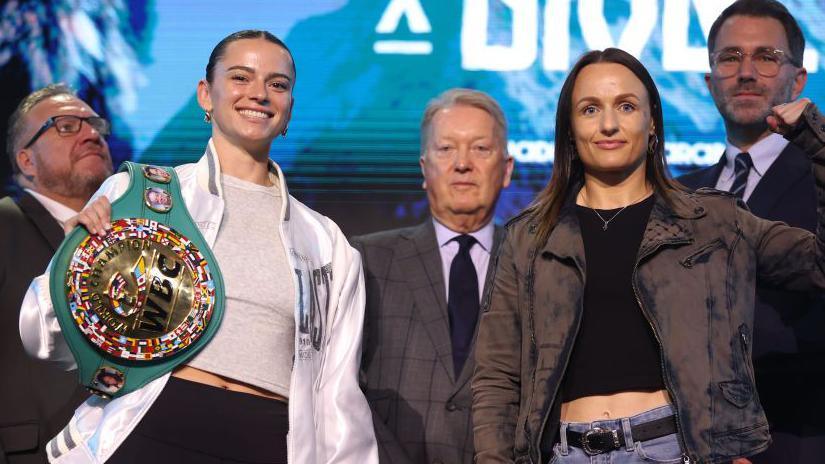
Follow live text commentary of Nicolson v Chapman from 19:00 BST on Saturday on the BBC Sport website & app
- Published
Saudi Arabia has played host to some of the biggest boxing events over the past 12 months, and on Saturday – for the first time – the Kingdom will host a women's world title fight.
Australia's Skye Nicolson will defend her WBC featherweight title against Briton Raven Chapman, on the undercard of Artur Beterbiev v Dmitry Bivol, in Riyadh.
"This is a much-needed and big shot in the arm for women's boxing as it joins the Riyadh Season train which is moving to a greater destination for boxing," promoter Eddie Hearn tells BBC Sport.
The fight happens against the backdrop of a nation continually criticised by human rights organisations, particularly around its treatment of women and minority groups.
With Saudi Arabia's growing investment and influence in boxing, Britain's current and future crop of stars – including Tyson Fury, Anthony Joshua, Moses Itauma and Hamzah Sheeraz - have travelled to the resources-rich nation to compete in lucrative bouts over the past year.
However, female boxers have not featured on seven 'Riyadh Season' cards - five held in Saudi, one in Los Angeles and one in London.
Dance partners, glory & regret - Wardley-Clarke enters 13th round
- Published10 October 2024
Beterbiev v Bivol - all you need to know
- Published11 October 2024
Arabian fights - the impact of Saudi boxing takeover
- Published14 May 2024
Londoner Ramla Ali competed in the first women's bout in Jeddah in 2022 and Claressa Shields fought in an MMA bout in Riyadh in February.
Nicolson, who will earn a career-high pay day, says she is excited to be "a part of this women's movement" in Saudi.
So why has it taken until now?
Hearn says this is the first time he and other promoters have put forward a women's fight to the Saudi organisers, who are led by Turki Alalshikh, the chairman of Saudi Arabia's general entertainment authority.
"They wanted that first female fight to be in Riyadh, not in Wembley or Los Angeles because that happens all the time," Matchroom boss Hearn says.
"[Alalshikh] is a very knowledgeable boxing fan and there are some fights which may take priority over other fights, it doesn't matter if it's a female or male."
Is it a cause for celebration or concern?
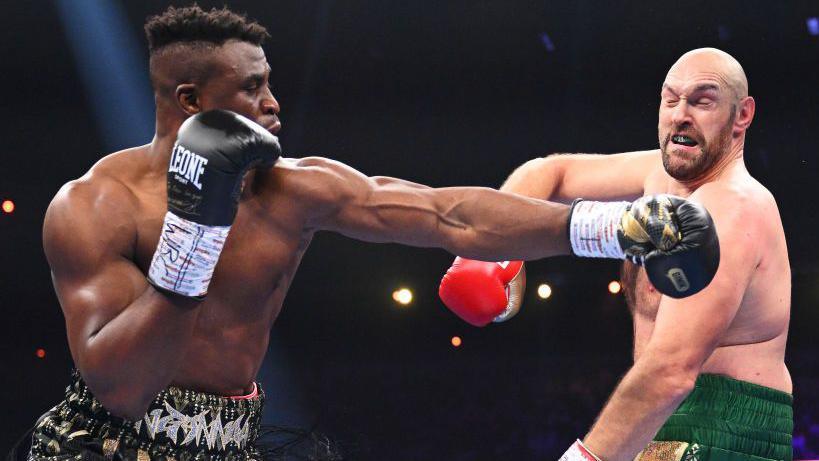
Riyadh Season hosted its first major boxing event on 28 October 2023 when Francis Ngannou fought Tyson Fury
While Saudi has made significant social reforms in recent years - in 2018 it changed the law to allow women to drive and to attend football matches – critics says its investment in boxing is to deflect attention from controversy over its human rights record, a practice known as 'sportswashing'.
Nicolson, however, had no reservations to fighting on the card and hopes to use her platform to promote opportunities for women in Saudi.
"They're trying to westernise the culture while keeping it respectful. But they do want to move with the times and the Western world. I think this is a big part of that movement," she says.
"I'm in such an empowering position to inspire women who will be at the show, women in Saudi Arabia who will think 'that can be me, I can fight or I can do what I'm passionate about'."
Earlier in fight week, Nicolson met young female boxers in Riyadh.
In 2019, Rasha Al Khamis became the Saudi's first certified female boxing coach, and she is now vice-president of the Saudi Boxing Federation, tasked with leading the charge to raise a generation of female boxers in the region.
However, human rights organisation Amnesty International says since 2022 when Ali fought, severe restrictions on women have remained.
"For all the likely talk about how this fight might show that Saudi Arabia is 'opening up' and 'changing', we should bear in mind that Saudi human rights activists who call for greater women’s rights risk immediate arrest, torture and a long jail sentence," Amnesty International's Felix Jakens said.
Meet Saudi Arabia's first female boxing coach
What does it mean for the future of women's boxing?
The bout featuring Nicolson and Chapman will take place early in the evening on a card featuring Briton Chris Eubank Jr, a world title fight between Jai Opetaia and Jack Massey and the British heavyweight title contest between Frazer Clarke and Fabio Wardley.
Yet this is reflective of female boxing as a whole. In the United Kingdom, the majority of world-title female fights are not guaranteed main event status.
"It's very difficult to make sure you can place them all and give them all opportunities," Hearn says.
"A lot of those female fights don't add significant value, but some male fights don't add significant value either."
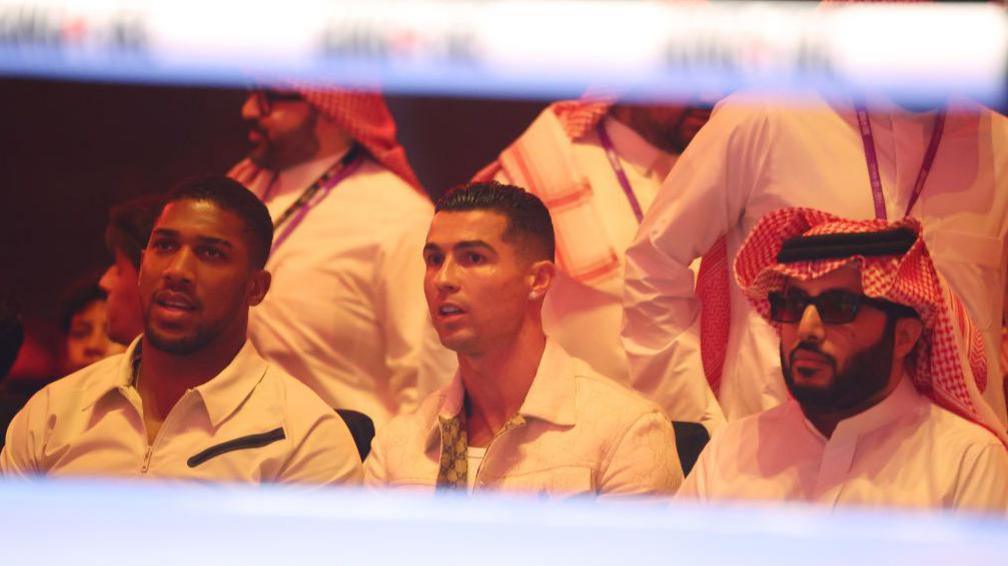
Saudi Arabia has spent around £5bn in sport since 2021 - saying the investment is being used to diversify the economy away from a dependency on oil
When several injuries to headliners bumped the Rhiannon Dixon v Terri Harper fight to top of the bill last month, it was rescheduled from an arena to a small hall show in Sheffield in front of under 2,000 fans.
"There has been a bit of a lull [in women's boxing]. It's probably been since the Riyadh Season cards have kind of taken over," Nicolson says.
Hearn's optimism for the future of women's boxing relies heavily on the Saudi involvement, with Nicolson doubling her previous biggest purse to date, though Irish superstar Katie Taylor is set to earn a reported career-best $6m (£4.6m) for her fight with Amanda Serrano in Texas next month.
"Win, lose or draw, Skye and Raven will come out of this with a much bigger profile to move forward and they'll be a bigger attraction," Hearn adds.
As for the future, Hearn has identified Sandy Ryan v Chantelle Cameron or Caroline Dubois v Terri Harper as potential fights which could be hosted in the Kingdom, and believes pound-for-pound star Taylor may even compete in the Middle East before retiring.
Related topics
- Published17 December 2024
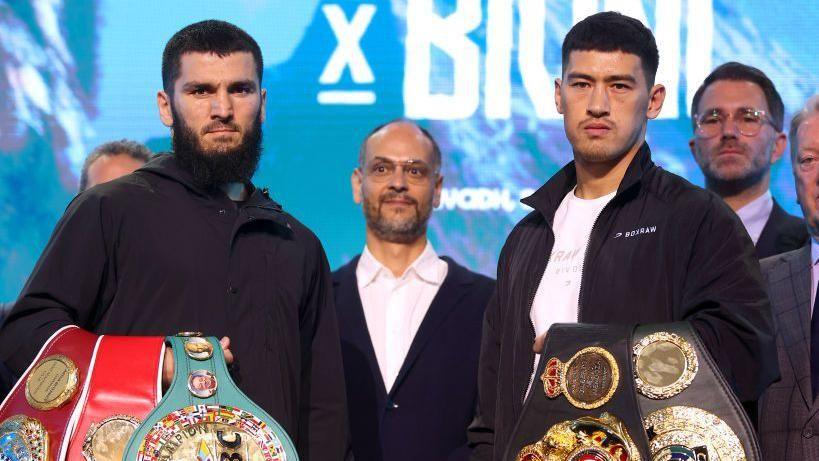
- Published28 April 2024
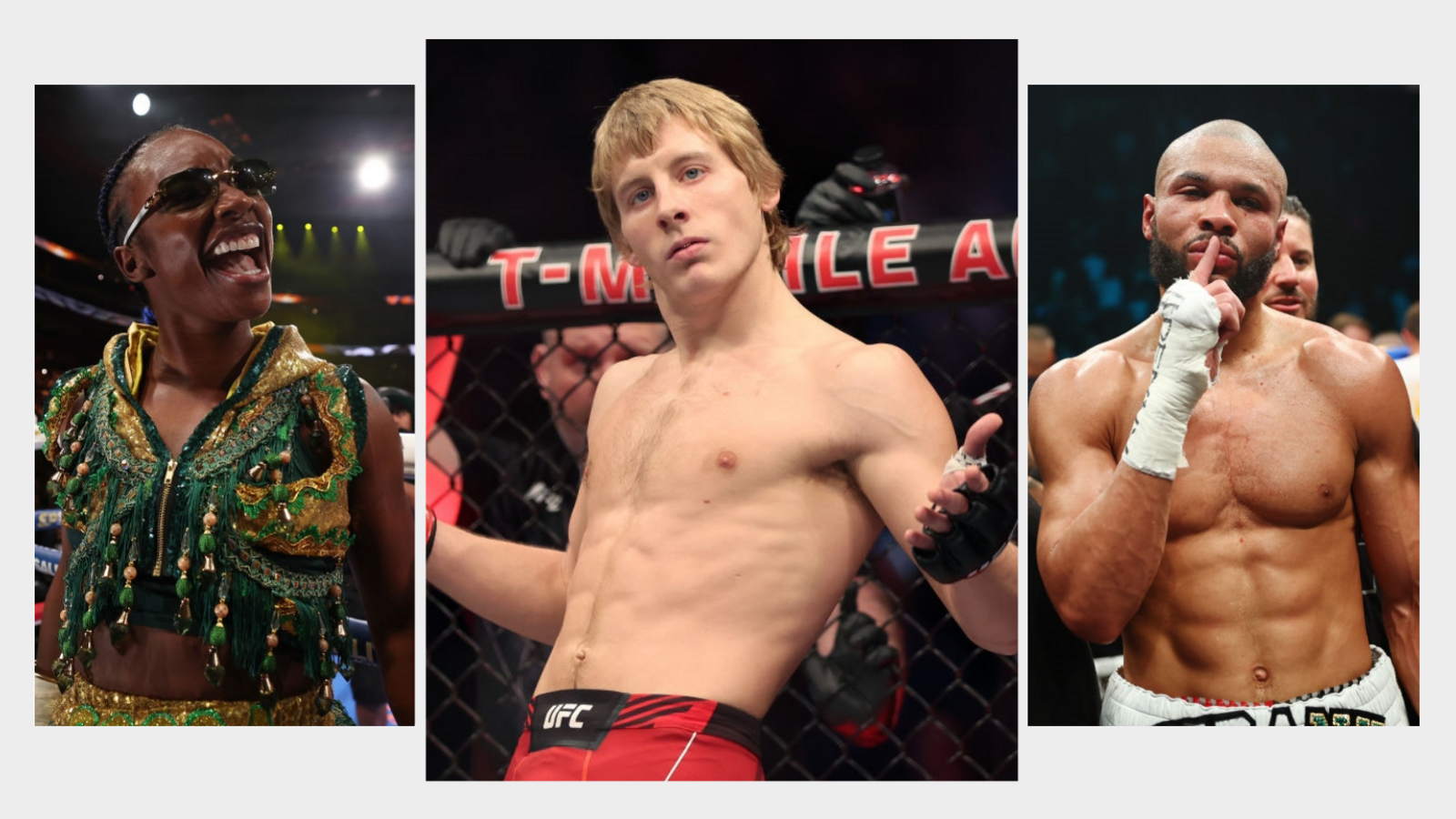
More boxing from the BBC
- Published16 August
